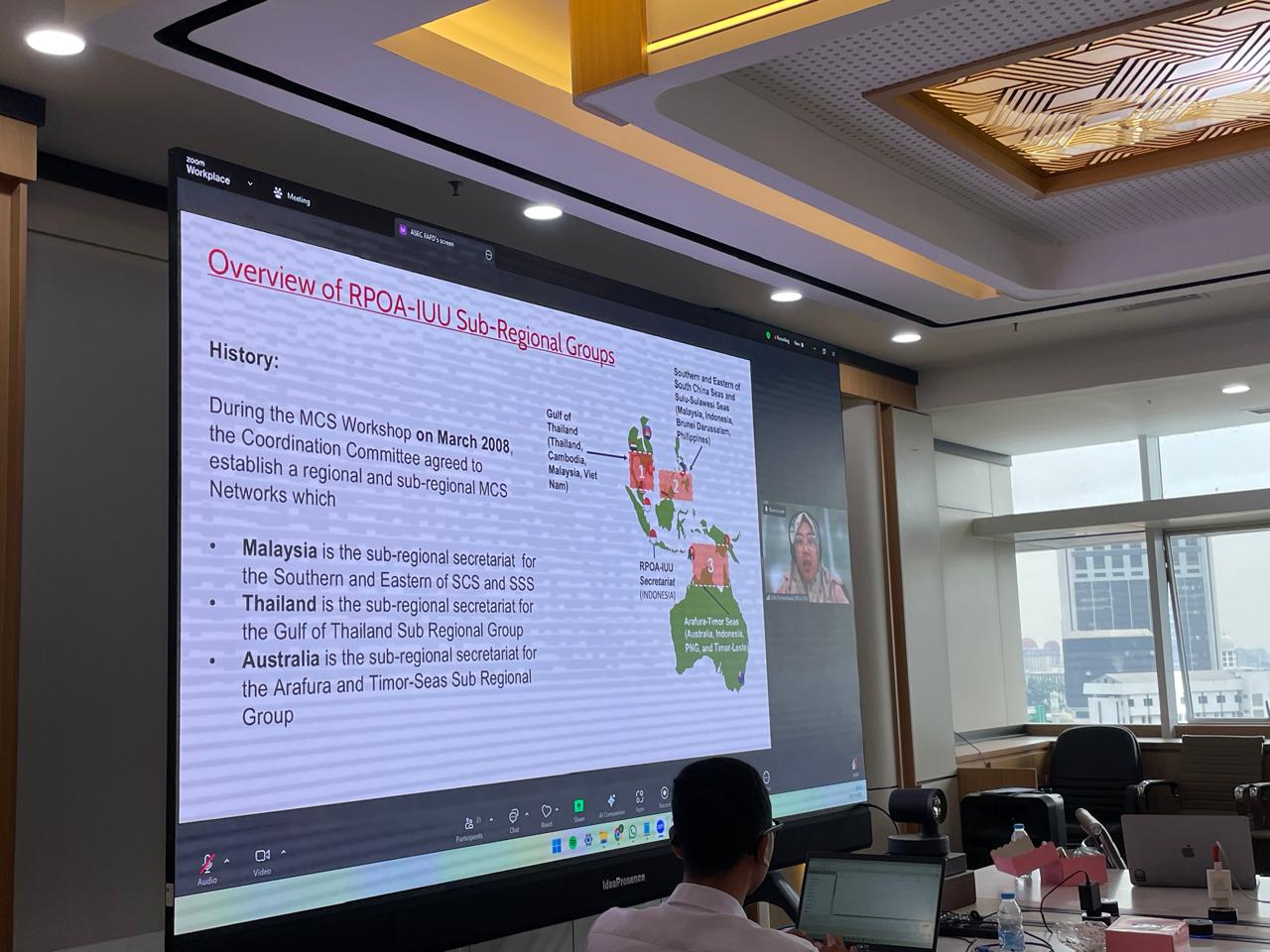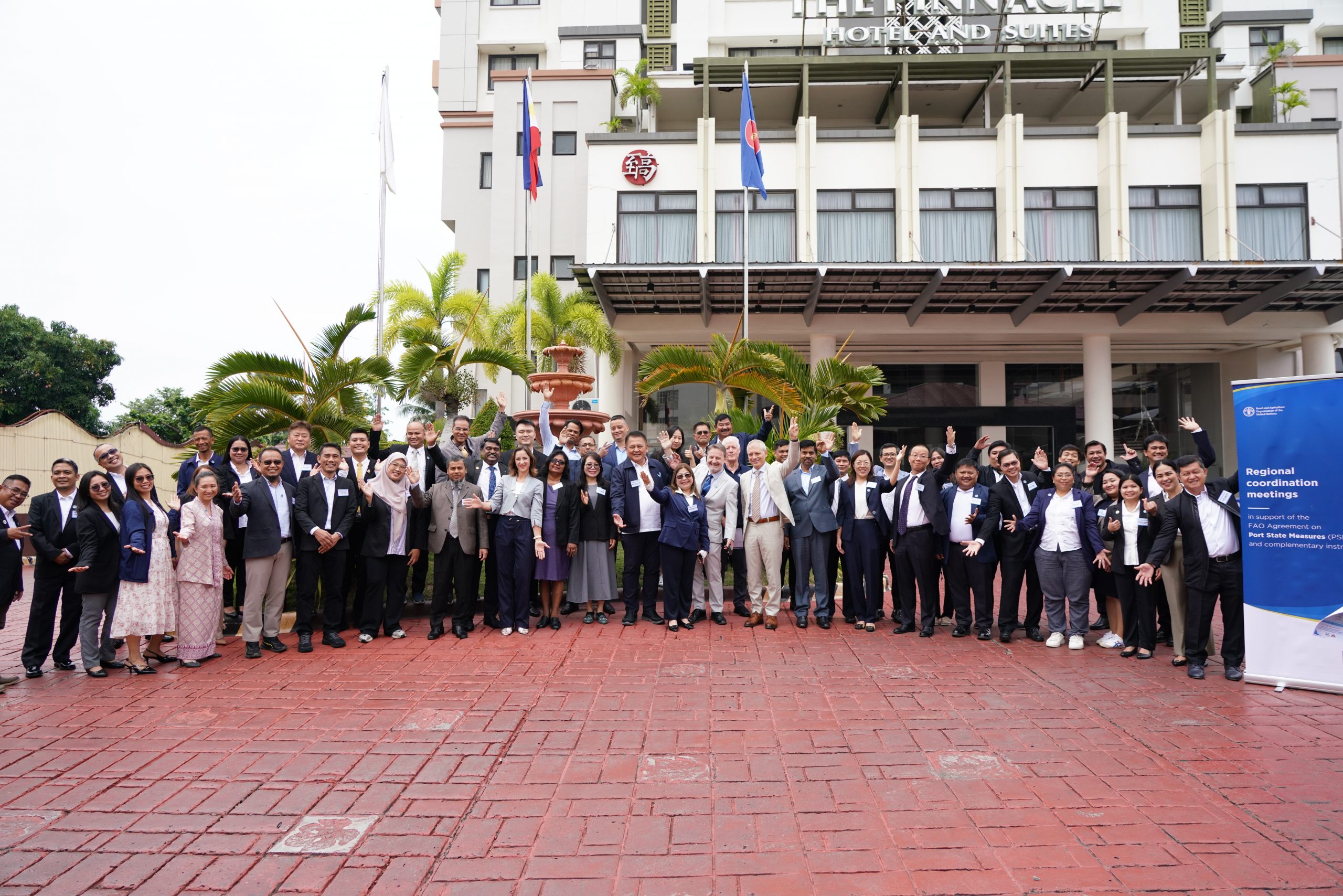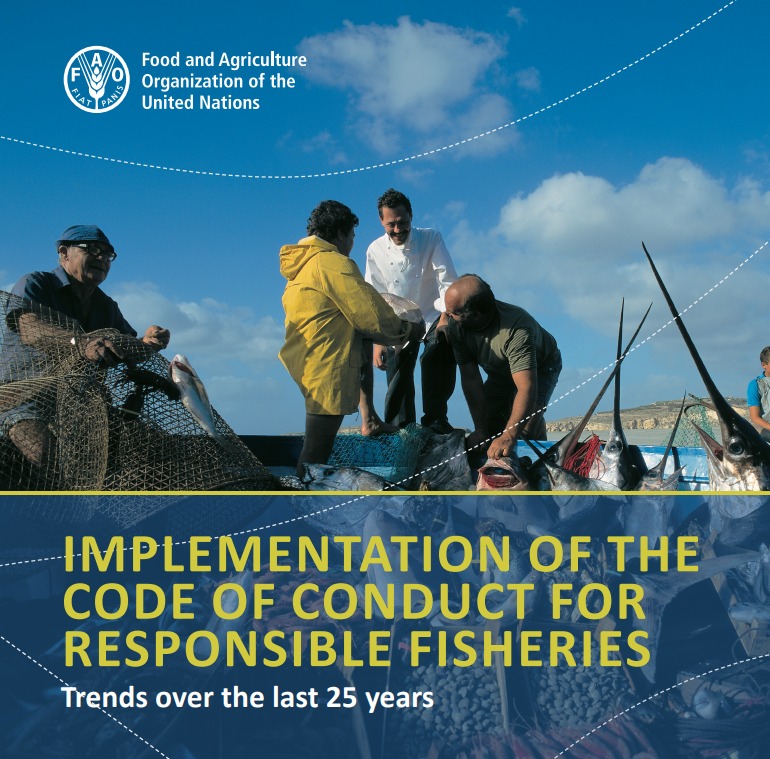Fishing and aquaculture provide a vital source of food, employment, trade and economic well-being for people throughout the world, for present and future generations, and should therefore be conducted in a responsible manner. The Code of Conduct for Responsible Fisheries (the Code) sets out principles and international standards for responsible practices supporting the sustainable exploitation and production of living aquatic resources, with due consideration for the conservation of ecosystems and biodiversity, and recognising the nutritional, economic, social, environmental and cultural importance of fisheries. Twenty-five years after its adoption, the Code remains as relevant today as it was in 1995. This booklet offers a glimpse into the objectives of the Code and the framework of instruments and guidelines that have, over the last 25 years, been built on the Code and in support of the implementation of its wide-ranging provisions. It also provides insights into some trends that can be observed through reporting by FAO Members on its implementation.
Home > Assessments and Studies > Implementation of the Code of Conduct for Responsible Fisheries
Implementation of the Code of Conduct for Responsible Fisheries
- Assessments and Studies
Download Resources
Related Updates

- December 4, 2025
- by Admin

- December 4, 2025
- by Admin

- December 4, 2025
- by Admin

